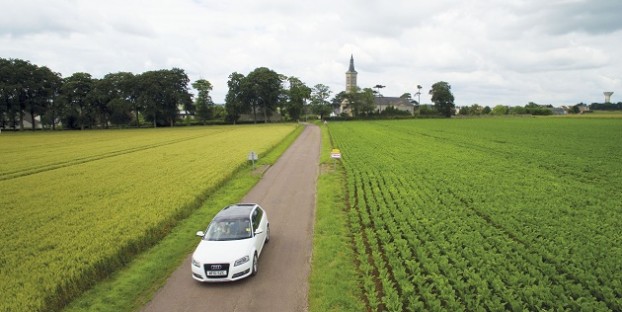
27 July 2018 by Jessica Boston
Driving in France: Here’s what you need to know before you go on holiday to France with your car in 2018!
You shouldn’t be intimidated by driving in France, obviously you’ll need to be on the opposite side of the road to what you’re used to in the UK, but you’ll quickly get the hang of it as you drive away from the French port. Just be sure to take extra time to check blind spots as having the drivers’ seat on the ‘wrong’ side can make visibility for turning and changing lanes a little more difficult.
As well as driving safely it’s important to be prepared with all the legal requirements whilst you’re driving in France. A checklist of essentials should include:
- GB sticker
- A hi vis jacket for each passenger in your car
- Two NF certified breathalyser kits
- A warning triangle
- A spare bulbs kit for your car
- Headlight beam reflectors (correctly fitted)
- Full UK driving licence
- V5 certificate of car ownership
- Car insurance certificate (make sure your policy covers driving in France)
- A ‘Clean Air Sticker’ (required for driving in Paris, Lyon, Lille and Grenoble)
So that’s what you do need, but how about what NOT to do?
Speed cameras
In France it’s illegal to have speed camera detectors or sat-nav systems that identify speed camera locations.
Speed limits
In France the speed limit varies depending on the weather conditions and the limit for A and B roads in dry conditions has recently been reduced to 50mph so don’t be caught out!
Drinking and driving
In France the legal alcohol limit is 0.05% (or 0.02% if you’ve been driving for less than 3 years). This is less than the 0.08% limit in the UK, so if in doubt it’s best to avoid any alcoholic drinks when you need to drive.
Using your mobile phone
Using any kind of phone, headphones or headset at the wheel for listening to music or making phone calls (including hands-free and Bluetooth devices) is prohibited, and is punishable by an €135 fine.
Travelling with children
Children under 10 years old are not allowed to travel in the front seat of the car without specialist seat belts (unless there are no rear seats with seat belts or the rear seats are already full with other children under 10).
Tolls and charges
Using the main motorways will require you to pay tolls at various points, you can pay in cash, or more commonly nowadays, with a credit or debit card. Please note that if you break French driving laws and need to pay an on the spot fine it will need to be paid in cash (they will issue you with a receipt).
For further information visit the Brittany Ferries guides to driving in France and be sure to drive safely and enjoy your travels!


Leave a comment